Nonrenewable energy sources aren’t sustainable, and nuclear fuels are not well accepted in our society. On the other hand, renewable energy sources are both safe and clean while reducing the industrialized world’s political and economic dependence on producers of fossil fuels in sometimes volatile regions of the world.
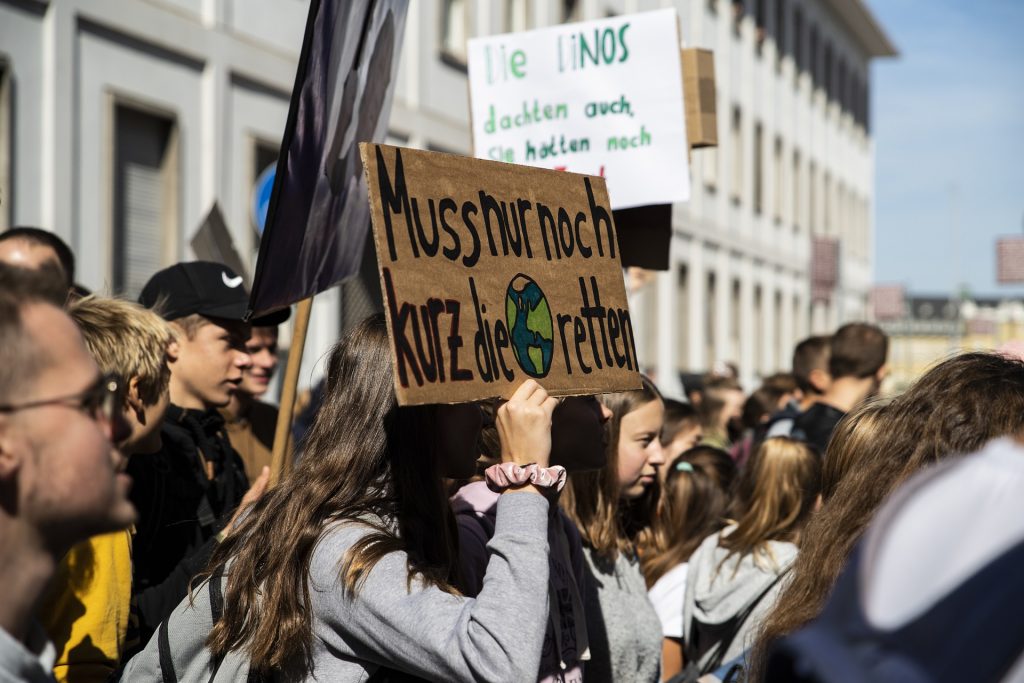
The climate protests of 2019 brought a heightened awareness of the dramatic effects of climate change, and highlighted the desire for more environmentally sustainable solutions to our energy consumption, production and distribution.
Preceding those Fridays for Future climate protests, some governments have long ago begun preparing for such a future. Germany, for example, has provided economic incentives for many years to households that have installed solar panels on their rooftops and contribute their excess electricity to the grid.
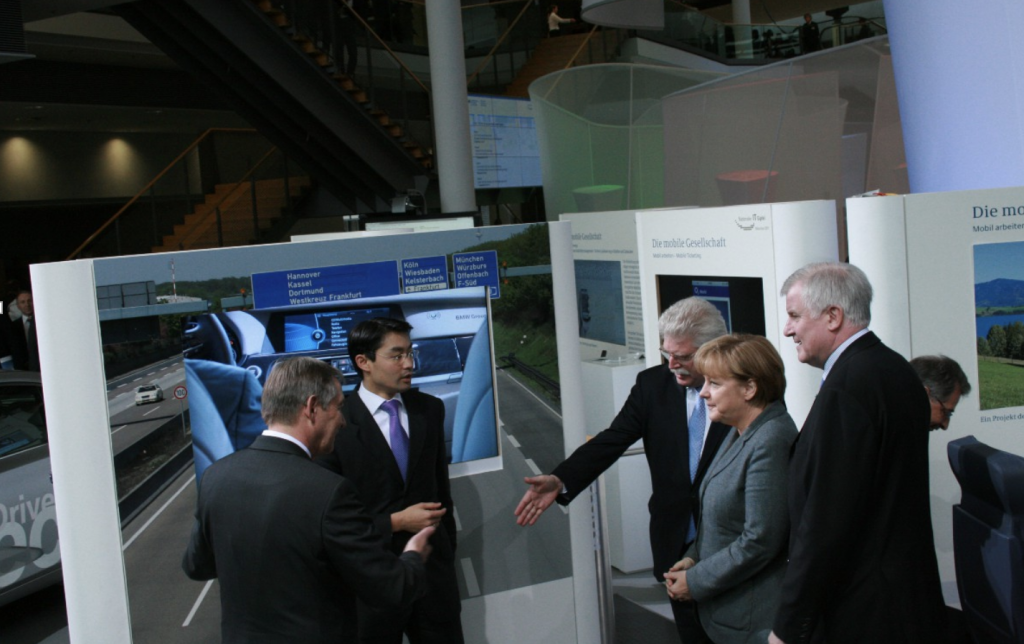
In 2010 the German government created an energy concept and the Bundestag, Germany’s lower house of parliament, approved it in 2011. The goals were to increase the contribution of renewable energy sources in electricity production by 2030 to more than 50% and to generally reduce greenhouse gases by 40% until 2020.
In 2011 the topics of e-energy and e-mobility were on the agenda for the annual IT Summit of the German government, and the goals were laid out to introduce an energy turn-around– the so-called “Energiewende”– in Germany.
Challenges Posed by Renewable Energy Sources
The nature of renewable energy sources, however, poses new challenges to legislators, regulators, and market participants. Coal, oil, gas, and nuclear fuels can be stored easily, and traditional power plants can be turned on and off according to energy consumption patterns. But because of the nature of wind and solar energy, these energy sources can not be stored. Electric energy also can not be easily stored except in rechargeable batteries or by using pump water reservoirs. Therefore, electricity must generally be consumed at the same time as it is produced. So, when power generation from renewables can not be easily predicted, this creates a conundrum for power companies who have the responsibility to satisfy demand at any given time.
Another issue is that wind energy requires huge modern windmill generators that sometimes prove to be an eyesore for citizens in neighboring villages. This means that where electricity is needed near population areas, windmills may not be acceptable socially and politically.
When these wind turbines are placed off-shore, huge distribution networks to the consumers of their electricity are required. Again, people in some regions, where large energy transmission lines cross through their land, dislike the appearance of the towers necessary for the proper electricity distribution networks.
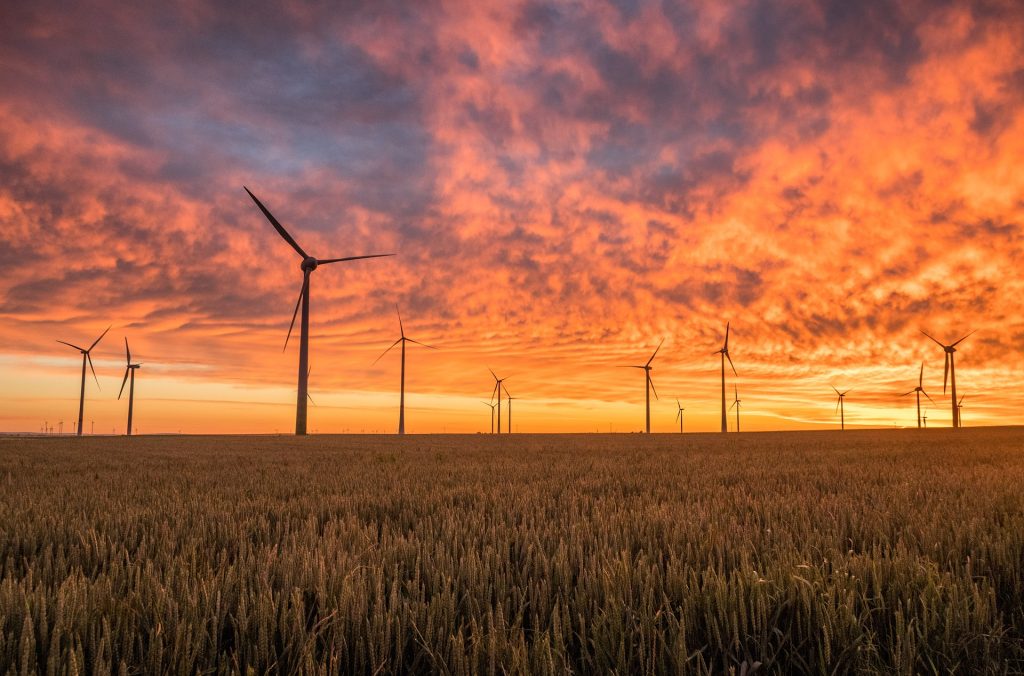
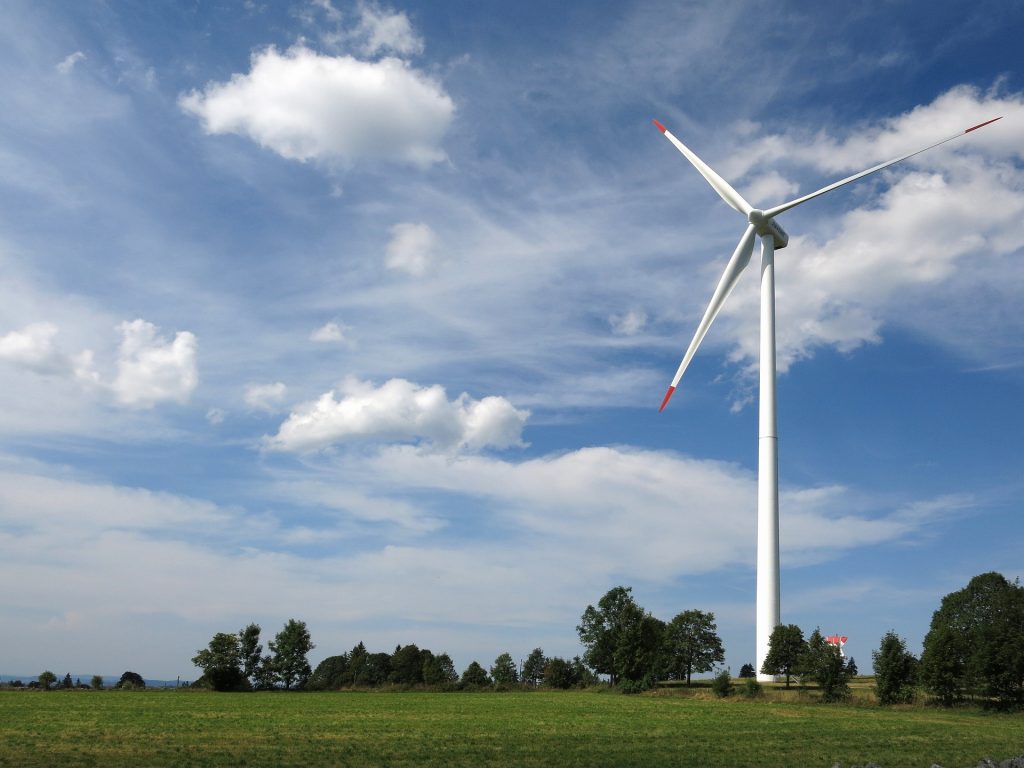
Both wind and solar power are very much dependent on the presence of either sufficiently strong winds, or a sufficient amount of direct sunshine hours. In the industrialized countries of the Northern Hemisphere, this means that the production and distribution of electricity from renewable sources is much less predictable than that from fossil or nuclear fuels. The only renewable energy sources that can be planned with similar certainty to non-renewables are hydroelectric and geothermic energy, but these require geological specifications not found everywhere.
However, changes in other markets could bring solutions to the energy market. The shift to electric cars means that at any given time an increasing amount of electric car batteries is on the energy grid, providing a buffer and energy storage system that could be integrated into the electricity grid load soon enough.
Opportunities in Energy Markets
The future potentials of renewable energy sources mean that there are not only big challenges ahead, but also big opportunities on the horizon. How these opportunities can be utilized will very much depend on regulatory and legislative systems, and from an economic perspective, on how incentives are distributed. A major step in this regard is the European Union Energy Policy:
“In 2019 the EU completed a comprehensive update of its energy policy framework to facilitate the transition away from fossil fuels towards cleaner energy and to deliver on the EU’s Paris Agreement commitments for reducing greenhouse gas emissions. The agreement on this new energy rulebook – called the Clean energy for all Europeans package – marked a significant step towards the implementation of the energy union strategy, published in 2015.” (See Source)
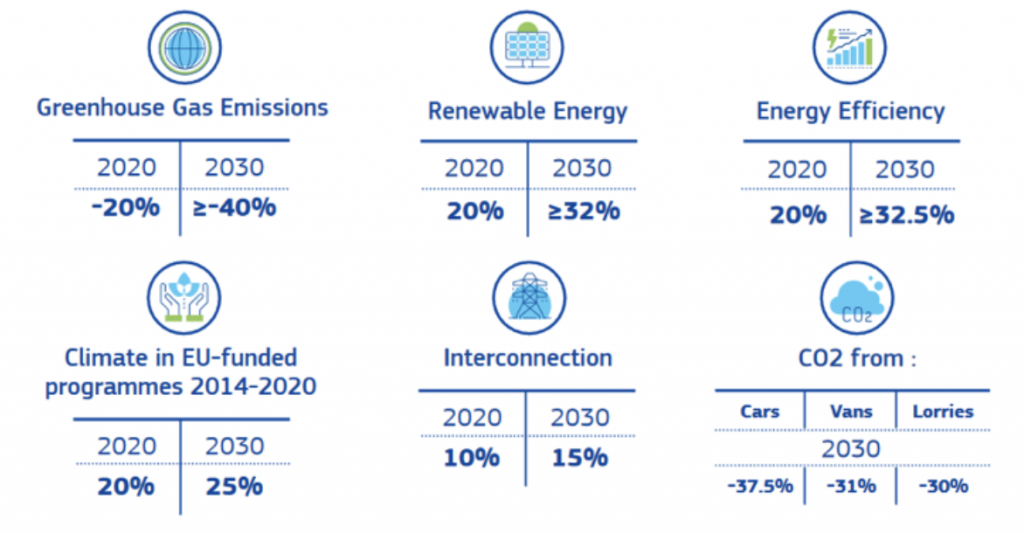
The graph on the left shows the European energy targets from 2020 to 2030.
(See: Fourth Report on the State of the Energy Union)
This is accompanied by National Energy and Climate Plans (NECPs), which have now been published by all EU member states (except the UK, due to Brexit).
What Next?
Obviously, the transformation of energy production and distribution with the parallel goals of reducing dependence on fossil fuels, protection of the environment by reducing greenhouse gas emissions, and ensuring a continuing competitive position for German and European manufacturing industries, remains a major undertaking for all.
How can Arete Publica Associates help you?
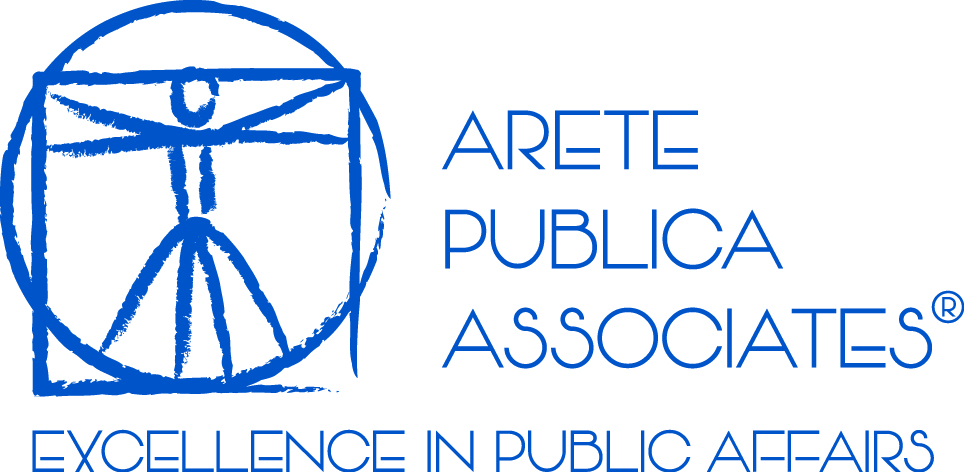
We can help you monitor and assess the impact of new legislation, regulation, and economic incentives on your business. We can provide you with regular updates on major developments, be they in the EU, or in any of the member states. We can help you to be at the forefront of initiating change, of commenting on legislative and regulatory proposals, to finding business opportunities and risk assessments.
Experience
Peter Hellmonds began his career in the energy business in 1977 as an apprentice and later in services sales with Siemens Power Generation, where he worked in Berlin, Germany and Cairo, Egypt. In 1998 he helped to bring to a successful financial closing the 1.5 billion USD deal for a 30-year Public-Private Partnership which established Jorf Lasfar Energy Company (JLEC) in Morocco. He managed to secure political risk insurance through the German government’s sovereign guarantees programme for a 200 million USD private sector investment into the new Moroccan joint venture. In 2010/2011 he brought the topics of e-energy and e-mobility onto the political agenda in the framework of the German IT Summit. Peter knows the industry from various perspectives and can apply his deep industry experience to benefit your business.
See more about The Jorf Lasfar Energy Company Project here.
For more information on our Energy Infrastructure services, please email info@arete-publica.com.


